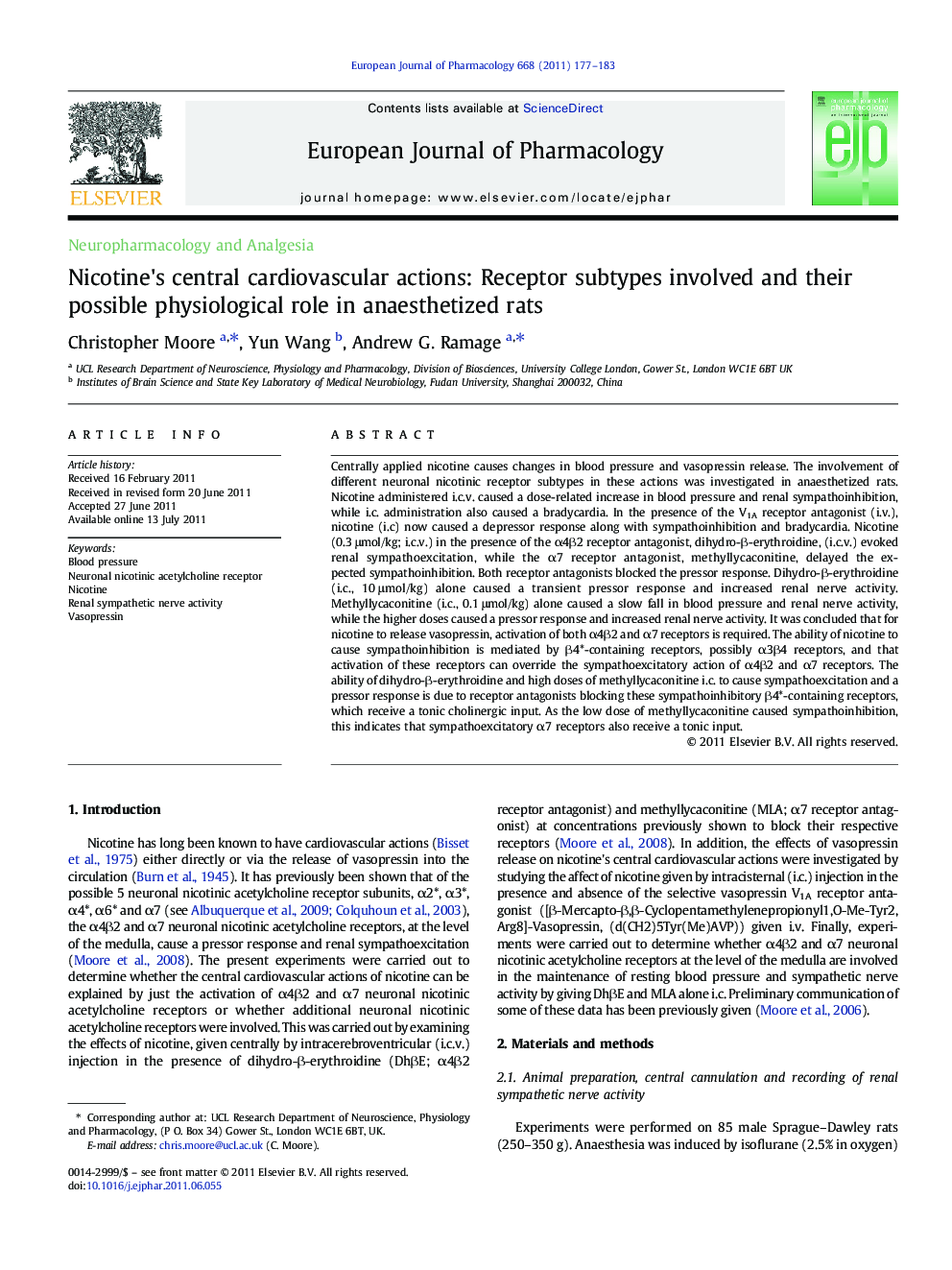| Article ID | Journal | Published Year | Pages | File Type |
|---|---|---|---|---|
| 5830078 | European Journal of Pharmacology | 2011 | 7 Pages |
Centrally applied nicotine causes changes in blood pressure and vasopressin release. The involvement of different neuronal nicotinic receptor subtypes in these actions was investigated in anaesthetized rats. Nicotine administered i.c.v. caused a dose-related increase in blood pressure and renal sympathoinhibition, while i.c. administration also caused a bradycardia. In the presence of the V1A receptor antagonist (i.v.), nicotine (i.c) now caused a depressor response along with sympathoinhibition and bradycardia. Nicotine (0.3 μmol/kg; i.c.v.) in the presence of the α4β2 receptor antagonist, dihydro-β-erythroidine, (i.c.v.) evoked renal sympathoexcitation, while the α7 receptor antagonist, methyllycaconitine, delayed the expected sympathoinhibition. Both receptor antagonists blocked the pressor response. Dihydro-β-erythroidine (i.c., 10 μmol/kg) alone caused a transient pressor response and increased renal nerve activity. Methyllycaconitine (i.c., 0.1 μmol/kg) alone caused a slow fall in blood pressure and renal nerve activity, while the higher doses caused a pressor response and increased renal nerve activity. It was concluded that for nicotine to release vasopressin, activation of both α4β2 and α7 receptors is required. The ability of nicotine to cause sympathoinhibition is mediated by β4*-containing receptors, possibly α3β4 receptors, and that activation of these receptors can override the sympathoexcitatory action of α4β2 and α7 receptors. The ability of dihydro-β-erythroidine and high doses of methyllycaconitine i.c. to cause sympathoexcitation and a pressor response is due to receptor antagonists blocking these sympathoinhibitory β4*-containing receptors, which receive a tonic cholinergic input. As the low dose of methyllycaconitine caused sympathoinhibition, this indicates that sympathoexcitatory α7 receptors also receive a tonic input.
